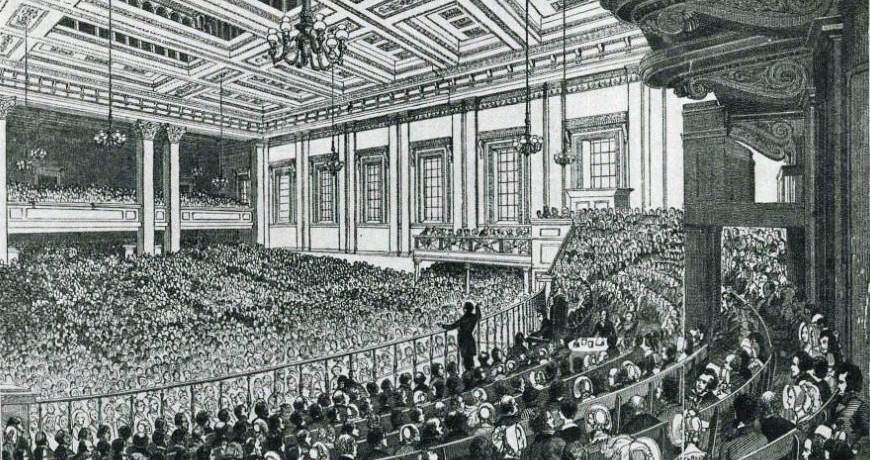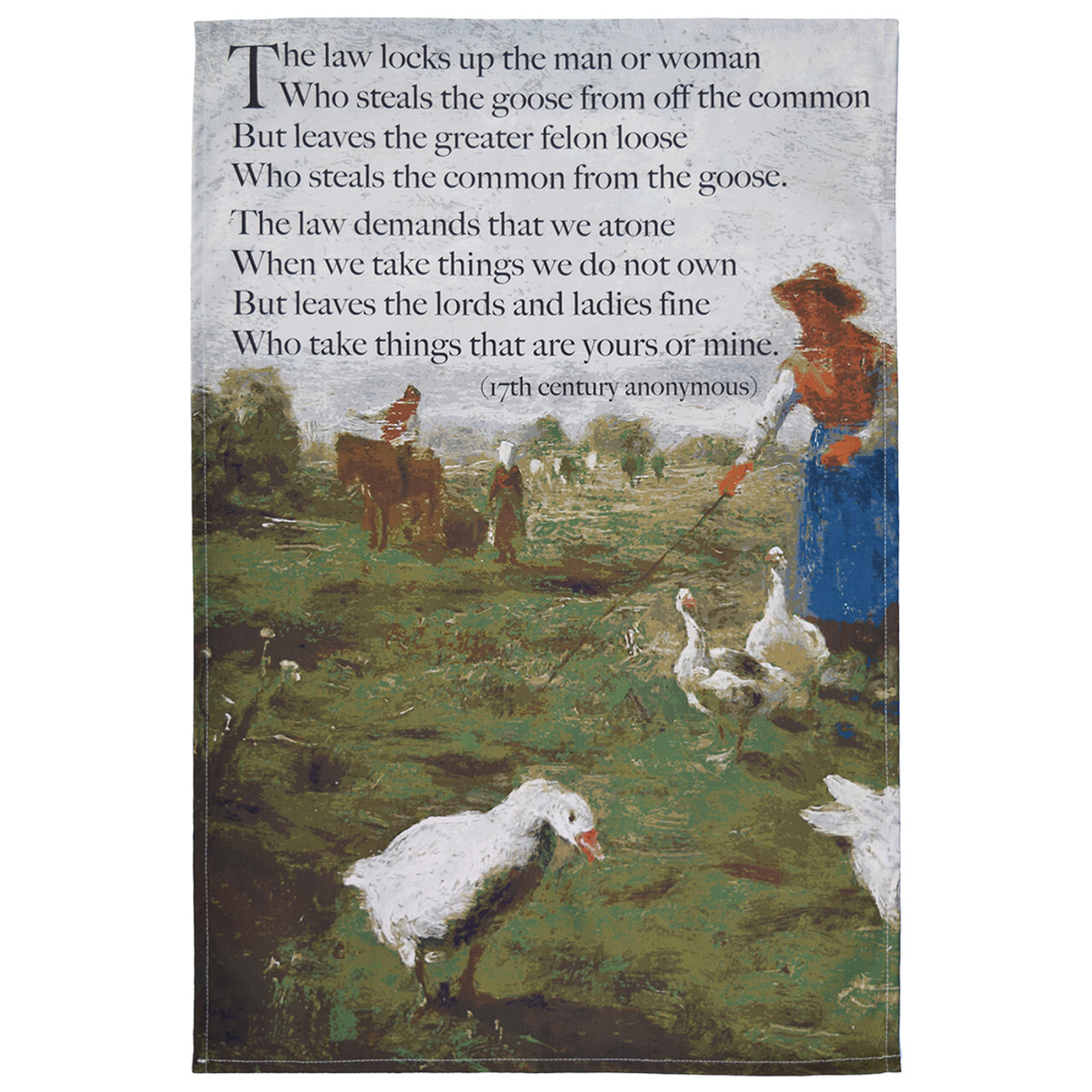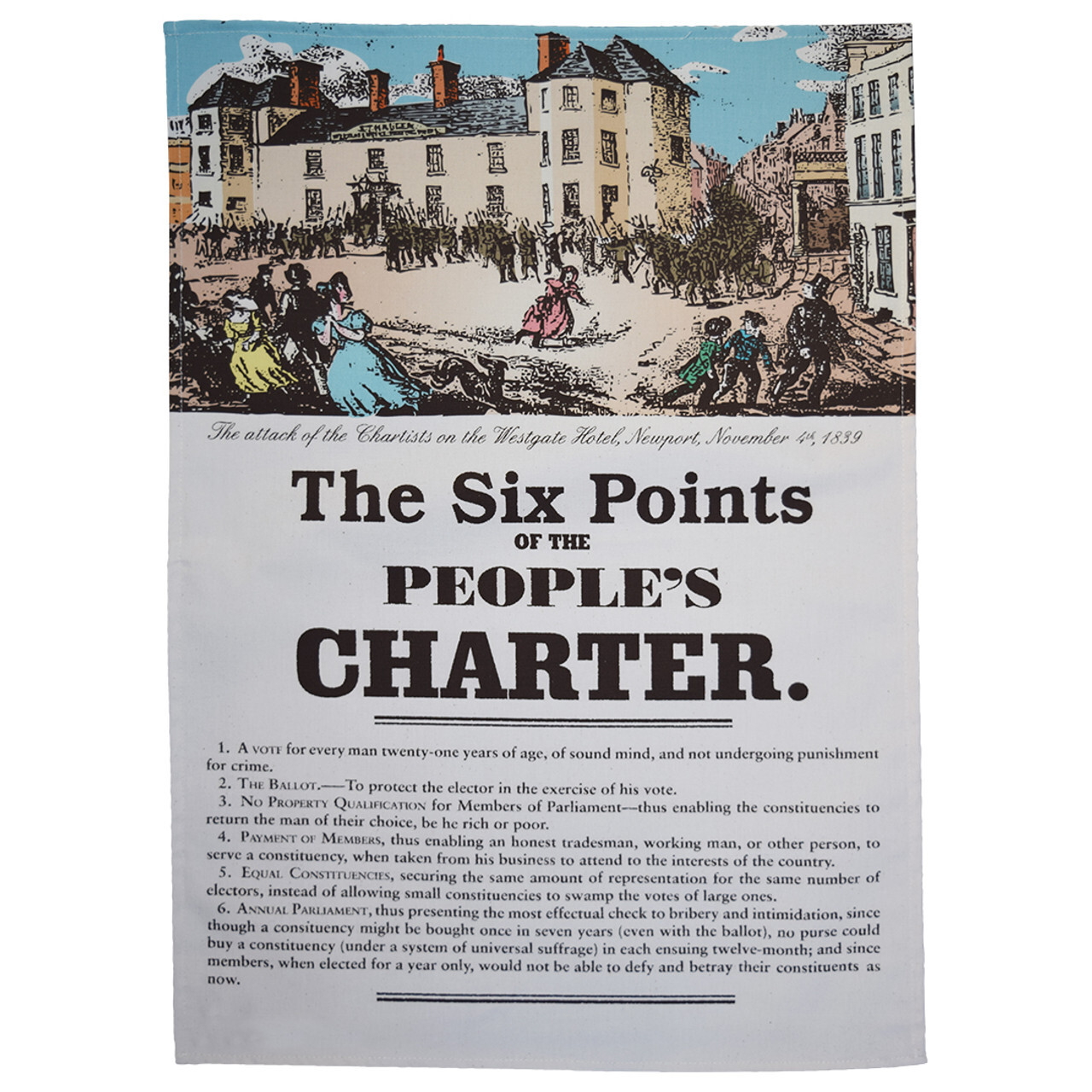The Anti-Corn Law League: The Original Free-Traders
Posted by Pete on 22nd Mar 2025
The struggle for economic freedoms coalesced with the struggle for political freedoms in 19th century aristocratic Britain

A meeting of the Anti-Corn Law League in Exeter Hall, Manchester, 1846
Free trade versus tariffs is a hot political issue these days – and not for the first time...
During the early nineteenth century, the question of free trade dominated British politics. Far from a commercial technicality, it was tied up with popular struggles over democratic freedom and empire.
The stage had been set by the so-called Corn Laws of 1815.
They were a brazen attempt by the British landowning class to use its monopoly of political power at Westminster to advance its own, sectional interest at the expense of everyone else in the country.
The Corn Laws attempted to protect the interest of landowners - whose land itself was often ill-gotten
See the Enclosures Rhyme tea towel
The laws stopped cheap wheat imports from abroad by whacking massive tariffs on them, to force British workers to buy the corn produced on the land owned by British aristocrats – land stolen from the workers’ own peasant ancestors.
The price of food, predictably, increased – and worker unrest increased with it.
The Corn Laws added more fuel to the social fire of postwar Britain.
The economic depression that followed the end of the Napoleonic Wars in 1815 had led to a wave of radical protests and rebellions by the working class in Britain, from the Radical War in Scotland to Peterloo.
And it wasn’t only the working class that were angered by the Corn Laws.
The British bourgeoisie, still, back then, a dynamic, rising class, also opposed the legislation.
Radical fractions of the manufacturing class, led by liberal agitators and political theorists like Richard Cobden and John Bright, saw the Corn Laws as threatening the free trade regime that British industry needed to grow.
So, a peculiar alliance emerged in 1830s Britain between manufacturers and workers, against the Ancien Regime aristocrats who continued to control the state.
In 1838, building on earlier, local associations, a nationwide Anti-Corn Law League was created.
Manchester was both the centre of British capitalism and its working class in the early-to-mid-19th century
Fittingly, the League was headquartered in Manchester, the classical city of modern British capitalism and the capital of both Britain’s proletariat and bourgeoisie.
The League experimented with modern methods of democratic protest, like mass demos and contesting by-elections.
It drew on earlier models of British activism, especially the campaign to abolish slavery.
Meanwhile, the free trade theorists like Cobden set out why the Corn Laws weren’t just an isolated single-issue.
Radical Liberals argued that the embrace of free trade was the way to achieve international peace through commerce, undermining imperialism in Europe and the wider world.
And they denounced the Corn Laws as proof of the undemocratic control of British politics by a minority of hereditary landowners.
All of this popular pressure meant that the Tory government of Robert Peel was forced to repeal the Corn Laws in 1846.
The Chartists were another early 19th century movement agitating against the system of aristocratic privilege which had long dominated Britain
See the People's Charter tea towel
Britain then remained a free trade empire until the early twentieth century.
And while the policy of free trade wasn’t inherently progressive – it was as often about helping British industry to undermine colonial economies elsewhere in the world – the legacy of the Anti-Corn Law League for political organising in Britain was a radical one.
In addition to Chartist agitation, the League helped to build an associational working-class political culture in Britain that would enable countless progressive movements in future.
Indeed, long after the factory owners abandoned their brief coalition with the working class, it was the workers who carried on the struggle against aristocratic privilege and power in modern Britain, from the Tolpuddle Martyrs to the mass trespasses of the twentieth century.
See Freedom Fighters & Rebels tea towels



